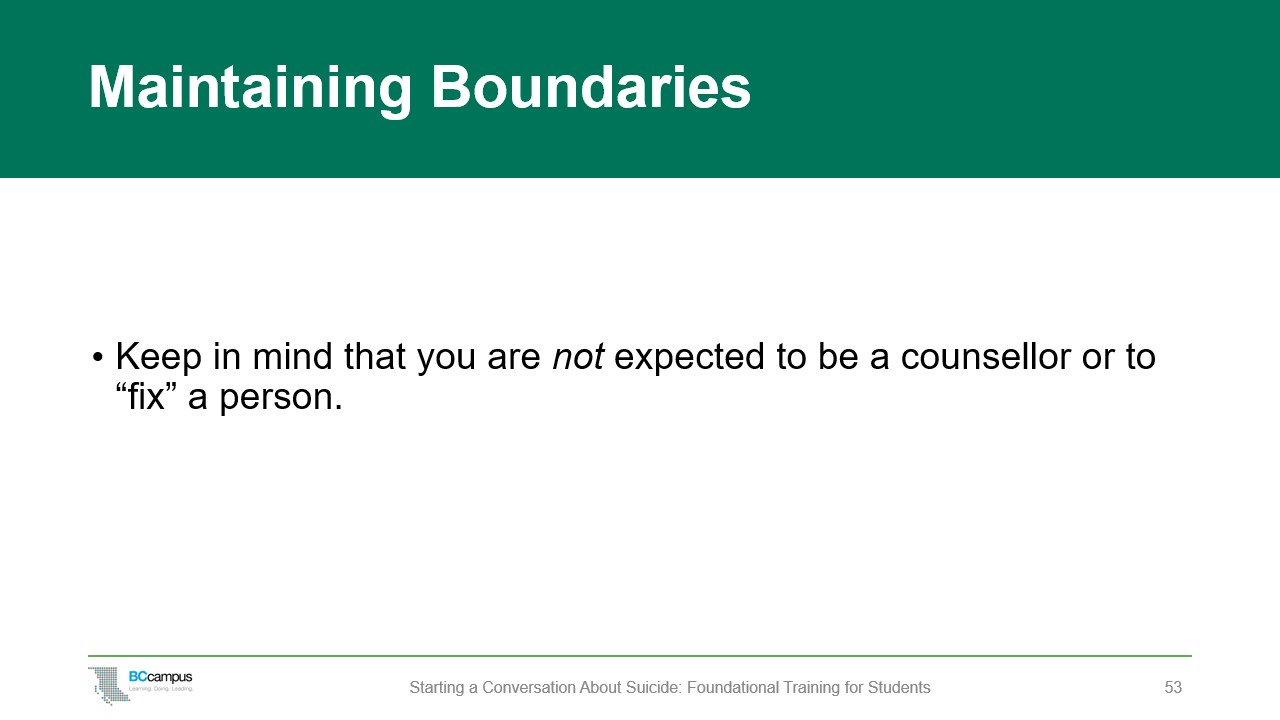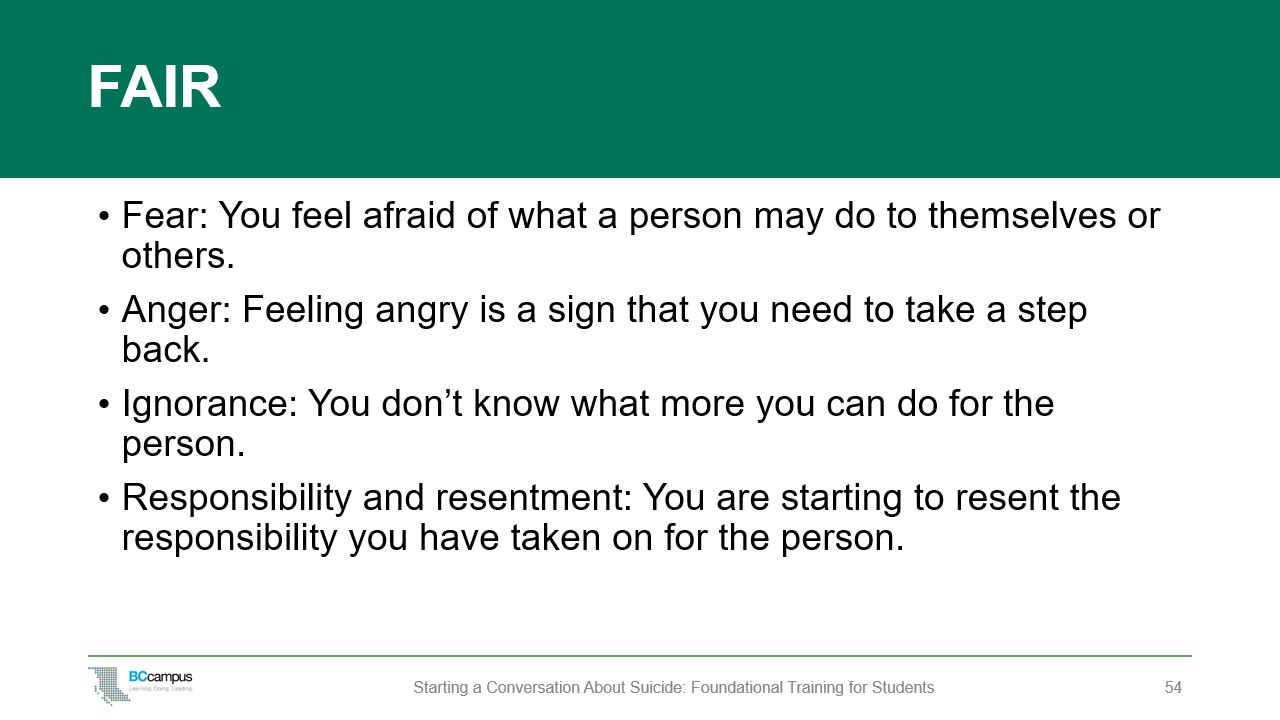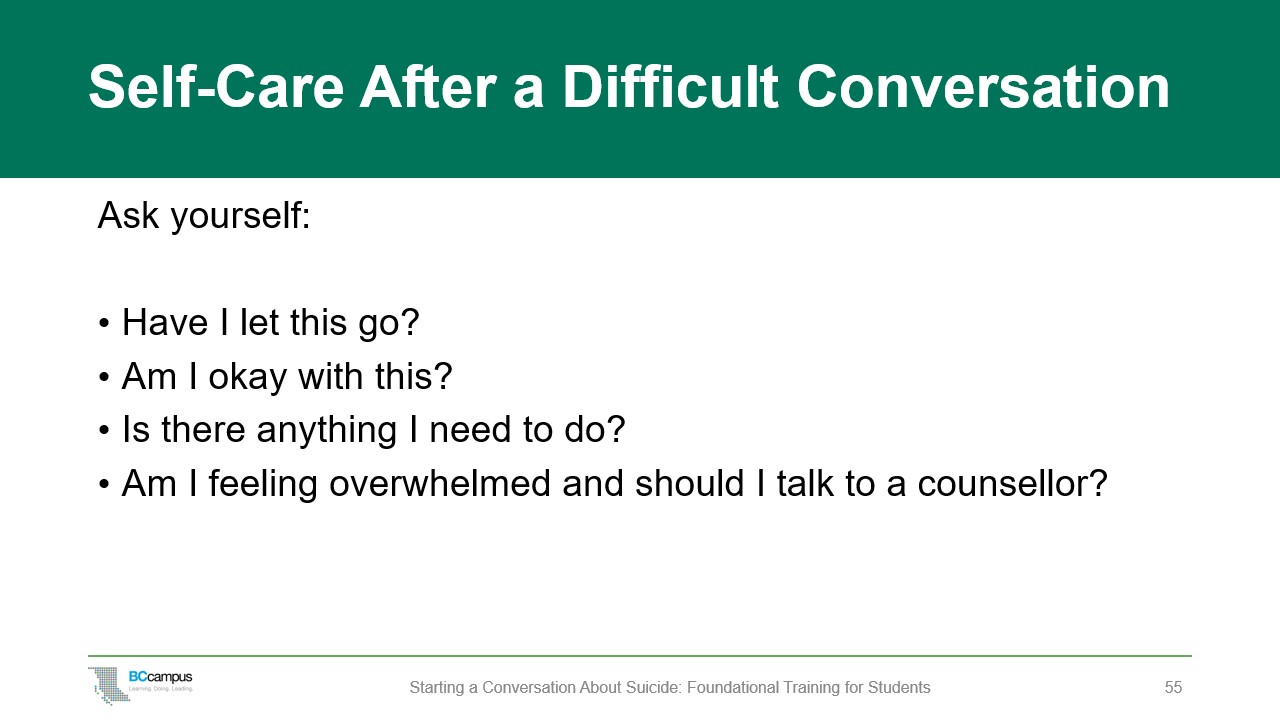Maintaining Boundaries
These slides are available for use with this section of the presentation. For information about downloading presentation slides, see Introduction.

Recognize What You Can and Can’t Do
When helping someone, it can be difficult to maintain your own boundaries. It’s important to recognize what you can and can’t do, given the limitations of your role, and be clear with others about that.
While you can be an empathetic listener and help connect a student with the proper resources, you are never expected to take on the role of a counsellor or to “fix” a person. There are services and supports to help a student at risk of suicide.
It is very stressful when a person asks you not to tell anyone. Remember that you can reach out for help if you are concerned for a person’s safety – even if they have asked you not to tell anyone.
To conclude your conversation, let the person know you are glad they talked to you. You could say:
- “I’m glad you told me…”
- “I can’t do that, but I can do this…”
- “I’m happy you chose to talk to me, and we need to talk about a transition plan because I’m not a counsellor. I’m struggling here because this is out of my depth. The best way I know how to deal with this is to talk to a counsellor.”
The conversation does not have to be a long one. By listening and referring a person to a counsellor or professional who can help, you could be making a big difference to this person who needs to know that someone hears them.
If you are living with someone or have a close friend who is in crisis or considering suicide, it can be very difficult to establish and maintain healthy boundaries. You may want to seek professional support to ensure that you don’t become overwhelmed.
Remember FAIR to Help Maintain Boundaries

“FAIR” is a good word to help you determine when you are outside of your boundaries and need more support. FAIR stands for fear, anger, ignorance, and responsibility and resentment.[1] Get advice and support if these four conditions apply:
- Fear: You feel afraid of what a person may do to themselves or others.
- Anger: Feeling angry is a sign that you need to take a step back.
- Ignorance: You don’t know what more you can do for the person.
- Responsibility and resentment: You are starting to resent the responsibility you have taken on for the person.
Please keep in mind that we are not responsible for the decisions that someone else makes. Suicide is ultimately a personal choice – it is not our job to “save” someone else’s life, only to offer them other options.
Self-Care After a Difficult Conversation

Talking about suicide can be emotionally draining, and we need to take care of ourselves. After a difficult conversation, ask yourself:
- Have I let this go?
- Am I okay with this?
- Is there anything I need to do?
- Am I feeling overwhelmed and should I talk to a counsellor?
You can reach out to counselling services at your campus or call one of the crisis lines. Counsellors or staff who answer the crisis lines are available to talk to anyone supporting another person in crisis and can advise you on what to do.
Tell yourself: “I have done everything I can for this person.”
Know your limits and ask for help if you feel overwhelmed; you are not responsible for solving the person’s problems on your own.
- Adapted from Encountering Concerning Behaviour on Campus, Ryerson University. ↵

